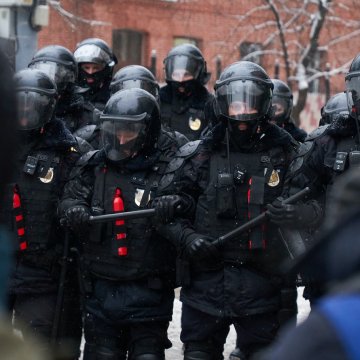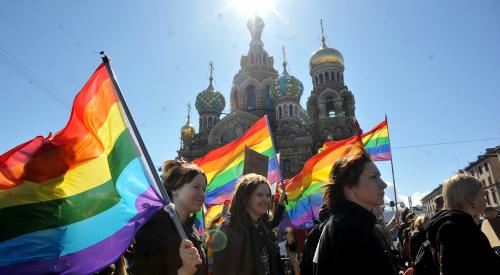- About
- Topics
- Story
- In-Depth
- Picks
- Opinion
- News
- Donate
- Signup for our newsletterOur Editors' Best Picks.Send
Read, Debate: Engage.
| topic: | Political violence |
|---|---|
| located: | Russia |
| editor: | Katarzyna Rybarczyk |
Despite being the fourth-largest greenhouse gas emitter in the world, Russia’s existing climate change policies and emissions targets are unambitious, indicating that reducing the country’s impact on the environment is not the government’s priority. As the authorities fail to address this pressing issue, the work of activists, who raise awareness about global warming and encourage the rest of the society to take action, is crucial. But with the Russian government's continued crackdown on any form of opposition, environmental activism has become dangerous.
Speaking up about the environmental damage of Russia’s oil and gas sectors has always been challenging as the Kremlin regularly attempts to conceal information that shows it in a negative light. Still, the law on “foreign agents” that was expanded last year has put more pressure on Russian climate change activists than ever before.
Under the controversial legislation, anyone who takes part in civic activism, or even just expresses opinions about Russian policies, could be designated a foreign agent, and consequently risks receiving fines or obstruction from carrying out their activities. Once environmental organisations are added to the list, they can no longer “act in an advisory or expert capacity in official or public environmental impact assessments,” Human Rights Watch explains.
The law is not the only obstacle eco-activists in Russia face, however. In an attempt to further silence and isolate them, Russia has been resorting to physical violence, arrests and deportations. “In the Kemerovo region of Siberia, unidentified people beat up a man who opposed the expansion of coal mines. In St Petersburg, the car of an activist who was protesting against the cutting of trees was burned,” said Natalia Zviagina, the director of Amnesty International’s Moscow office.
To avoid repression, dozens of environmental activists have fled Russia, and those who stayed have had their political freedoms restricted. Russia’s most prominent climate activist Arshak Makichyan, for example, was stripped of his Russian citizenship a few months ago, a move that has left him stateless. “I was trying to unite people and bring real changes to Russia. That’s why they started this case against me and my family,” Makichyan observed.
Although Makichyan left Russia and now lives in Germany, at the beginning of February 2023, Russian authorities ordered his brother and father - both of whom had also been deprived of their Russian citizenship - to leave the country. “This might be a retaliation for his human rights advocacy on climate change and against the war in Ukraine,” commented Mar Lawlor, UN Special Rapporteur on Human Rights Defenders.
As a result of intensifying persecution and continuous threats, climate activism in Russia has been suppressed. Citizens have been deprived of the possibility to play a role in shaping Russia’s environmental policies and are unable to promote positive change.
Seeing how the impacts of climate change can already be felt in Russia and around the world, enabling the work of environmental activists is key. Having said that, it is imperative that the international community creates an alternative platform for Russian climate campaigners to continue their efforts. They urgently need support and resources so that their fight and sacrifices are not performed in vain.
Image by Valery Tenevoy

